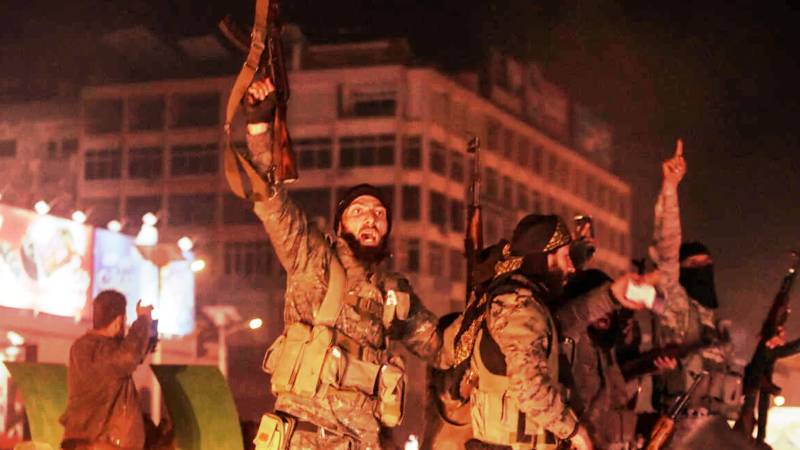
The Syrian civil war, once thought to be subdued, is reigniting with rebel forces making rapid territorial gains, including capturing the key Syrian towns Aleppo and Hama. This renewed conflict, tied to the fragile ceasefire between Israel and Hezbollah, underscores a precarious balance of power that could destabilize the entire Middle East, according to Dr. Kamran Bokhari, a renowned expert on geopolitics and Middle Eastern affairs.
“This was bound to happen,” said Bokhari in an interview with Unraveled with Marvi Sirmed. “The weakening of the Iranian sphere of influence at the hands of Israel over the past year created an opening for rebels, particularly Hay’at Tahrir al-Sham (HTS), to exploit.”
The Rebel Surge and Its Roots
The latest offensive, led by HTS, comes after years of territorial stagnation in Syria. Bokhari attributes the resurgence to several factors, including economic discontent, Iran’s diminished capacity to support the Assad regime, and Hezbollah’s retreat to Lebanon. He called the Assad regime “a warlord entity propped up by external forces” that is now vulnerable due to shifting regional dynamics.
“HTS has strategically positioned itself, much like the Taliban in Afghanistan,” Bokhari noted. “It has not only improved militarily but also gained local support by governing and providing services in Idlib, paving the way for its offensive.”
This momentum has already led to significant advances, and Bokhari warned that the fall of cities like Homs could bring the conflict to Damascus’s doorstep.
Israel-Hezbollah Ceasefire: A Fragile Balance
Violations of the ceasefire between Israel and Hezbollah have further complicated the regional equation. Bokhari argued that both parties are using the truce to regroup, but the broader impact of Israeli strikes in Syria has been unintended.
“Israel aimed to weaken Iran’s proxies, but it inadvertently destabilized the Assad regime,” he said. “Now, Israel faces the possibility of Sunni Islamist groups filling the vacuum left by Assad’s weakening grip—a scenario it cannot afford on its northern border.”
Bokhari revealed that Israel is already considering setting up a buffer zone in southeastern Syria to prevent jihadist spillover, illustrating how the ceasefire’s instability is reshaping strategies across the region.
Iran’s Catch-22 and U.S. Calculations
For Iran, Syria has been a critical bridge to its proxy Hezbollah in Lebanon. Bokhari described Tehran’s current position as a “fallback strategy” as its decades-long influence network collapses under regional and international pressure.
“The fall of Assad would be a seismic event,” Bokhari said. “It would not only disconnect Iran from Hezbollah but also threaten its position in Iraq, where Sunni opposition could rise along shared borders.”
The United States, meanwhile, faces its own challenges. Bokhari emphasized that Washington’s focus on countering ISIS and limiting Iranian influence has left it with limited leverage over other key players like Turkey and the Gulf states. “External powers are overrated in battle spaces,” Bokhari remarked. “Once on the ground, actors like HTS follow their own logic, making it difficult for external influence to shape outcomes.”
A Humanitarian Toll Amid the Chaos
The escalating conflict has displaced tens of thousands in recent weeks, adding to Syria’s already dire humanitarian crisis. Bokhari painted a grim picture of prolonged instability, saying, “The war in Syria is just reigniting. Even if Assad falls, it won’t mark an end—it will open a new chapter of conflict.”
He compared the situation to Afghanistan’s decades of turmoil, warning of similar long-term consequences for Syria if state structures collapse.
The Bigger Question: The Nation-State’s Future
In a sobering conclusion, Bokhari questioned the viability of nation-states in the Middle East, noting that many, like Syria, Libya, and Yemen, have failed to withstand modern conflicts. “The nation-state in this region never truly took hold,” he said. “What we’re seeing now is the meltdown of these states, giving rise to non-state actors and prolonged wars.”
As Syria’s conflict unfolds, the international community faces daunting challenges. Bokhari urged global powers to prioritize humanitarian relief alongside political solutions but acknowledged the limits of their capacity amid numerous crises worldwide.
“Syria today is a reminder of how conflicts ripple across borders, fueled by competing interests and old grievances,” said Unraveled host Marvi Sirmed in her closing remarks. “Whether peace is a possibility or a mirage depends not just on the players in the region but also on the global powers watching from afar.”
The Syrian conflict, as Bokhari puts it, is entering a new and uncertain chapter—one whose ripple effects could reshape the Middle East for generations to come.
